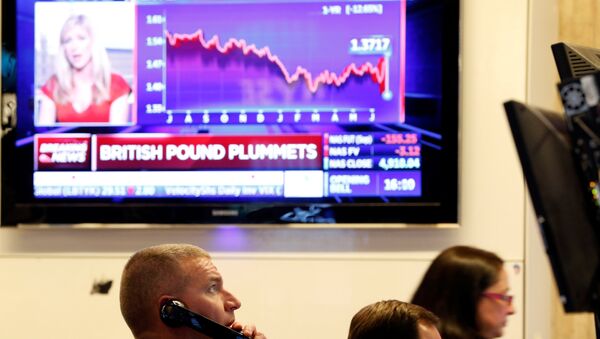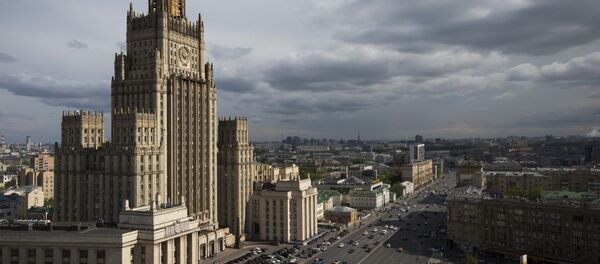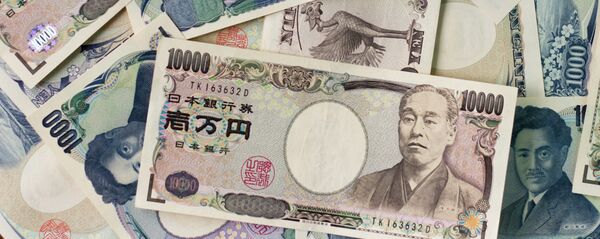Kristian Rouz – It is not any longer just the “Main Street” suffering the unfavorable consequences of the worn-out Neo-Keynesian combination of monetary and fiscal policies on a global scale.
Amidst the slowing global growth, political risks and rife uncertainty dominating even the near-term outlook, investment capital has evaporated from almost each and every sector of productive activity, either it is real economy of financials, with the money flowing into governmental debt, precious metals and select currencies, i.e. all the non-liquid or less-liquid, low-yielding assets.
Such a situation significantly undermines the efficiency of productive forces on a global scale, contributing to an even greater economic slowdown here and there. The vicious circle has closed, with a structural reshuffle in world economics, effectively ending the contemporary era of globalization, deems the likeliest option to restore the productivity in global economy, being, however, a longer-term – and quite a distant one – perspective.
Up until recently, international financial enterprises had performed relatively well compared to the faltering real economies in the US, the Eurozone, Japan, and other select markets. Yet, in the past three months, things started to change, with investment being wiped out of the once-lucrative assets in favor of safety – investors are hardly seeking profits any longer, they simply want to save what they have left.
Denominated in local currencies, the following categories of international businesses have tanked in 2Q16. European banks led the declines (-18 percent in June only), riskier European stocks posted comparable losses as well. The Japanese stock market slumped in June, with the Nikkei Index dropping 10 percent against the backdrop of the strengthening yen (+7 percent in June). Broader European stock markets also ended June in the red territory, indicating an across-the-board disinvestment in European businesses regardless of sector they operate in, whether it is financial or real economy.
Meanwhile, gold and silver surged in value by 9 and 17 percent, respectively. Oil prices added 26 percent in 2Q16, reflecting the rife disinvestment in oil industry, primarily, in the US, hampering the supply side, whilst global demand for fuels has hardly accelerated.
“As bad as things have gotten, central banks have talked about new types of easing – that’s going to keep a bid under equities,” Andrew Brenner of New York-based National Alliance Capital Markets said. “The worse things get, the more potential there is for quantitative easing and the better that is for equity markets.”
Indeed, more liquidity injections from central banks could spur stock market gains, with a tiny portion of central bank money even reaching the actual listed businesses. Yet, central bank action within the framework of quantitative easing mindset has proven inefficient, as recent implementation of negative interest rates policy (NIRP) regime in Japan failed to stave off the yen’s appreciation, whilst similar measures in the Eurozone largely failed to spur domestic lending and overall growth.
Meanwhile, a major slowdown in the US construction sector (where investment dropped 3 percent in May and June, the most since early 2011) was marred with weaker sales and lower groundbreaking rates. According to data from the Institute for Supply Management (ISM), the US manufacturing sector posted a surprise surge in June to the Purchasing Managers’ Index reading of 53.2 (those above 50 indicate expansion) from that of 51.3 the previous month.
“Producers are struggling in the face of the strong dollar, the energy sector decline and presidential election jitters. With companies craving certainty, heightened tensions between the UK and the European Union are likely to unsettle the global business environment further in coming months, and therefore risk dampening growth in the US and export markets,” Markit Economics said in a statement.
Whilst the economic productivity gains have slowed to their lowest in over three decades in most advanced nations, and the losses on “Main Street” now being transitioned to “Wall Street”, a fragmentation in international trade might stir a global recession as a potential consequence. Macro fundamentals aside, there is more alarming evidence, with Deutsche Bank failing the Federal Reserve’s stress test in late June. Deutsche Bank is three times as large as Lehman Brothers was in 2008, suggesting the scale of a possible impending meltdown.







